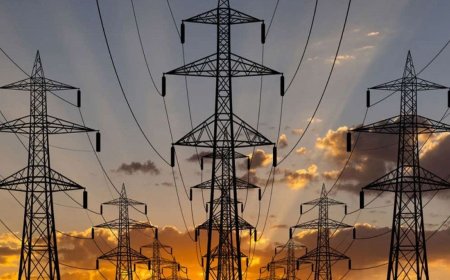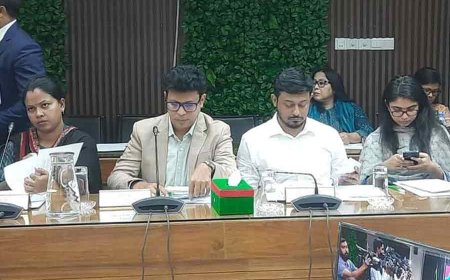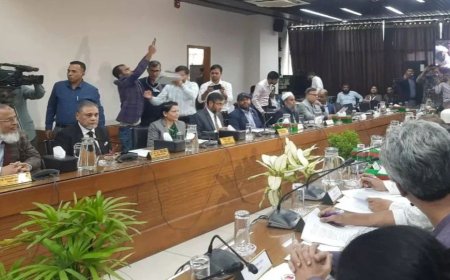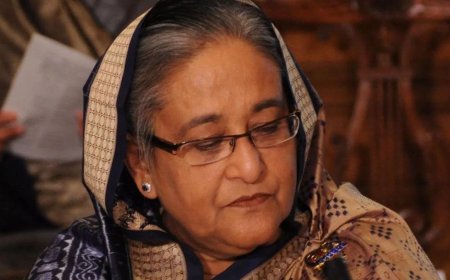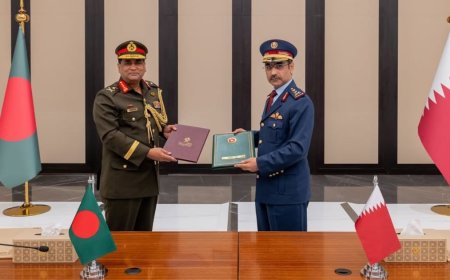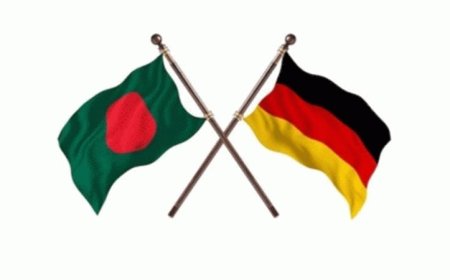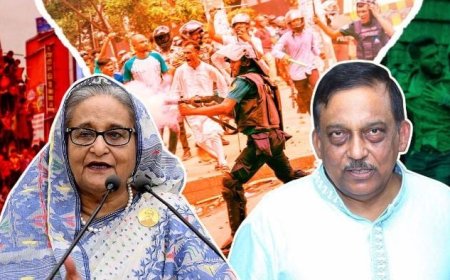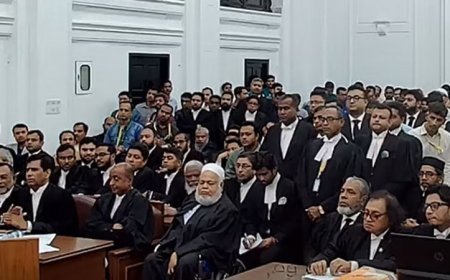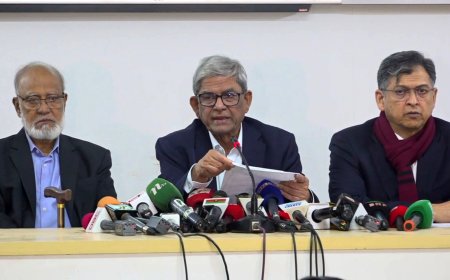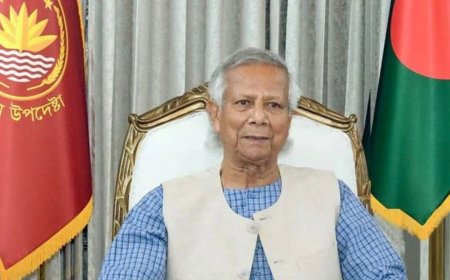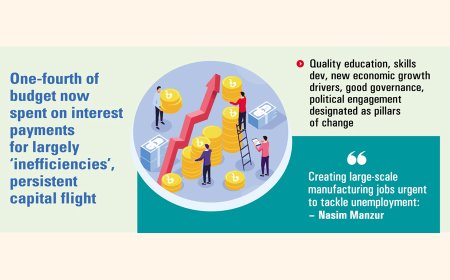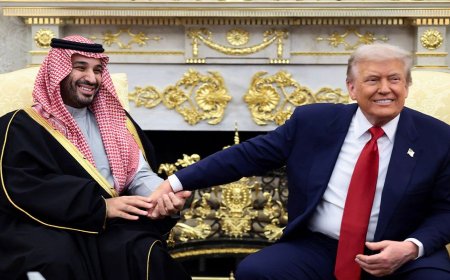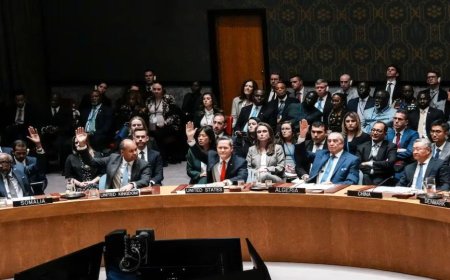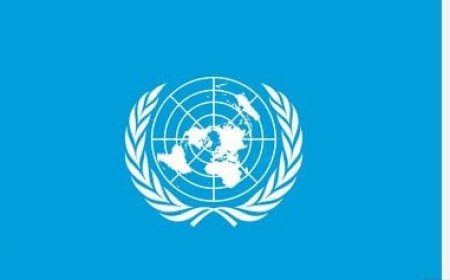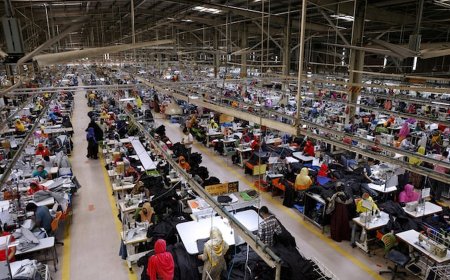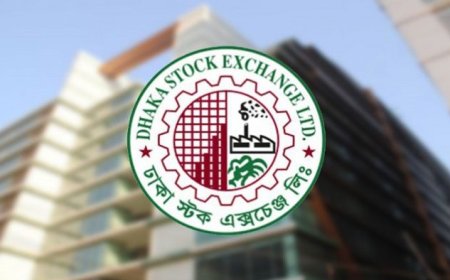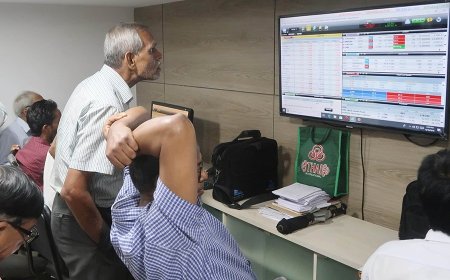A Budget Grounded in Reality
In a Year of Austerity, Interim Government Poised to Unveil a Realistic and Reform-Oriented Budget
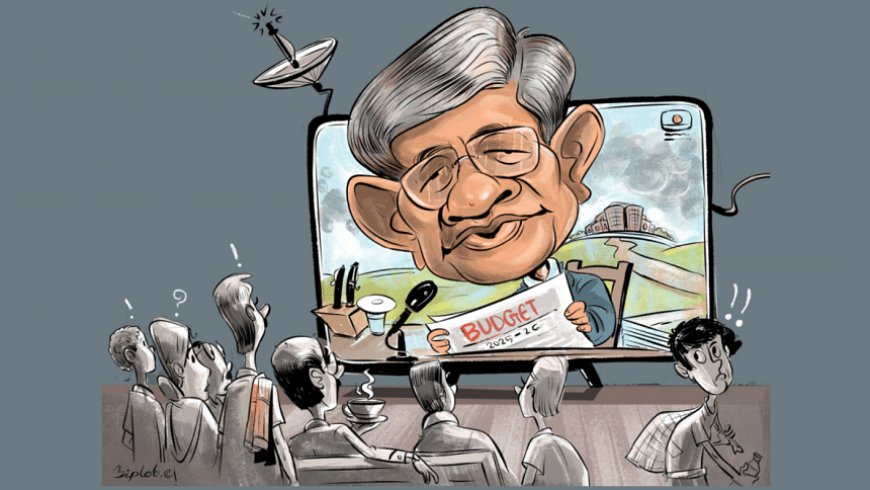
No lofty GDP targets. No fixation on megaprojects. No thunderous applause in parliament. This year, it’s just a pre-recorded address by the finance adviser, airing quietly on state television.
At 3:00pm today, Salehuddin Ahmed will present the first budget of the interim government—and the first of his career. No ceremony, just a nation tuning in with quiet anticipation. This may well be the most realistic budget in years, offering what many see as a long-overdue fiscal reset.
As expected, Ahmed will speak candidly about endurance and difficult choices. A country long fed on big promises will hear a budget stripped of illusion—spoken in the language of realism. The planned deficit is a modest 3.6 percent of GDP, the smallest in over a decade, signaling a clear break from the past’s looser spending habits.
In a move that underscores restraint, Ahmed is expected to scale back the total budget by Tk 7,000 crore to Tk 790,000 crore. It's not a sweeping cut, but it sends a message: the era of tightening belts has arrived. Yet a leaner budget need not mean neglect. If allocated wisely, resources can still strengthen education, healthcare, and critical infrastructure—pillars of long-term growth. In truth, spending is never just a fiscal act—it is a political statement. The power to spend must not be hemmed in by outdated ideas of "sound finance" or arbitrary austerity.
Unemployment, long pushed to the margins, now demands center stage. For years, growth failed to produce jobs. Bridges and buildings went up, but meaningful work remained elusive. As the economy expanded, dignity quietly eroded. Now, the budget has a chance to reflect Chief Adviser Muhammad Yunus’s vision: zero unemployment. Without confronting this, the promise of growth rings hollow.
"There’s a growing mismatch between the education system and private sector needs," noted Selim Raihan, an economist at Dhaka University. "And much of the workforce remains trapped in informal jobs with no security or benefits," he added.
This budget arrives at a politically uncertain moment. Hope is dimmed by a fog of ambiguity around the election timeline, and discontent is simmering. Recent protests—from the National Board of Revenue to Dhaka South City Corporation and the secretariat—underscore rising tensions.
No Illusions
Ahmed’s address won’t offer sugar-coated forecasts. The government’s projected growth rate of 5.5 percent even lags behind the IMF’s conservative estimates. Gone are the days of chasing growth at any cost.
Last week, the Bangladesh Bureau of Statistics projected only 3.97 percent GDP growth for the outgoing fiscal year—its slowest since the pandemic, largely due to a slump in agriculture.
Still, Bangladesh’s GDP is poised to cross $500 billion, a symbolic milestone despite the economic headwinds. For the first time in years, necessity—not politics—is shaping the budget.
Yet concerns remain. Some economists warn that while the budget may be realistic, it lacks a clear roadmap for recovery. Numbers alone won’t suffice. A credible economic strategy is needed to rebuild and reform.
This year’s priorities will shift. Subsidies will focus on food and farming. Infrastructure splurges are unlikely. The rural economy will take precedence over urban ambitions.
"The government should target labour-intensive sectors like agro-processing, light engineering, and ICT," said Raihan. “A well-crafted jobs strategy that supports SMEs, promotes entrepreneurship, and expands vocational training could be transformative.”
As for taxes, Ahmed has made his stance clear. “I’m in the mood to end every exemption,” he declared on May 18. The age of selective benefits may be ending.
This administration will be judged not by lofty promises, but by its reform record. Reforms are never painless. The central bank has already shown resolve in cracking down on troubled banks—its first serious test passed. Now the focus turns to stabilising inflation and financial markets, with social sector investments leading the way.
The budget is also expected to expand food security programmes and social safety nets in response to rising food prices and climate challenges. Agriculture, too, remains a priority, with continued support for mechanisation and rural resilience.
Debt Realities
Despite the aim to lower debt risk, foreign borrowing will rise—not for vanity projects, but to stabilise critical sectors. Energy shortfalls and past financial missteps have left little choice.
On the external front, there are signs of recovery: the trade deficit is shrinking, the current account is improving, and reserves remain stable at $20 billion. But machinery imports and capital goods remain low, hinting at investor hesitation.
International headwinds are also strengthening. Tariffs under Donald Trump’s policies and rising trade barriers in India pose new challenges.
Bangladesh’s negotiation skills—both at home and abroad—will now face unprecedented tests, especially with LDC graduation approaching in 2026.
The new fiscal year lies ahead like a steep and narrow trail. It won’t be easy. But in this moment of reset, cautious steps may be the country’s wisest path forward.
What's Your Reaction?







